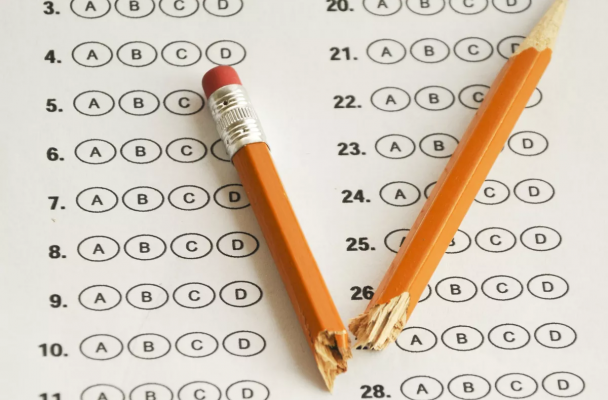Standardized Testing Not the Answer

caption: Standardized testing has received a great deal of criticism over the years. Image from Vox
By Alyssa Molan
Staff Writer
You’re sitting at a school desk, palms sweating, heart racing, staring at a test that is going to measure your academic worth, and your mind goes blank.
This situation happens to students all over the nation and is one of the many reasons why standardized tests should be discontinued. As a student who academically excels, yet struggles with testing, the purpose of standardized tests is a concept I do not understand.
How can one test accurately portray years of hard work and dedication?
Proponents of standardized testing cite that studies such as the work of Michael W. Kirst, Stanford University professor of education, has found that standardized tests are a positive predictor of student achievement. However, after the No Child Left Behind act passed in 2002, the United States slipped from 18th in the world in math to 31st place in 2009, with a similar drop in science and no change in reading.
The United States as a country is not ranked highly for the caliber of education that students earn. Other nations that are ranked significantly higher do not incorporate standardized testing into the curriculum or as a factor of student achievement.
In defense of standardized testing, supporters argue that the tests are reliable and objective measures of student achievement. They dispute that without them, test scores from individual schools and teachers would carry all the weight of measuring student and faculty ability, introducing human subjectivity and bias.
While it is correct that multiple-choice tests that are graded by machine do not leave room for personal interpretation, a 2001 study published by the Brookings Institution found that 50-80% of year-over-year test score improvements were temporary and were “caused by fluctuations that had nothing to do with long-term changes in learning.”
Standardized testing may not be the answer to gauging student efficiency and achievement.
“If teachers cover subject matter required by the standards and teach it well, then students will master the material on which they will be tested – and probably much more,” stated the U.S. Department of Education in 2004.
This idea is better known as ‘teaching to the test.’ Proponents of standardized testing believe that “teaching to the test” can focus students and their instructors on essential content and skills, which is believed to motivate students and eliminate time-wasting activities that don’t result in learning gains.
Nonetheless, standardized tests are narrowing the curriculum.
A national 2007 study by the Center on Education Policy reported that since 2001, 44% of school districts had reduced the time spent on science, social studies and the arts by an average of 145 minutes per week to focus on reading and math. Also, a survey in 2007 found that 75% of those teaching current events were teaching less often due to standardized tests.
On paper, standardized testing looks like a good plan, but in practice, we see something different. It is time to find an alternate method of measuring student achievement, one that is inclusive to all students.